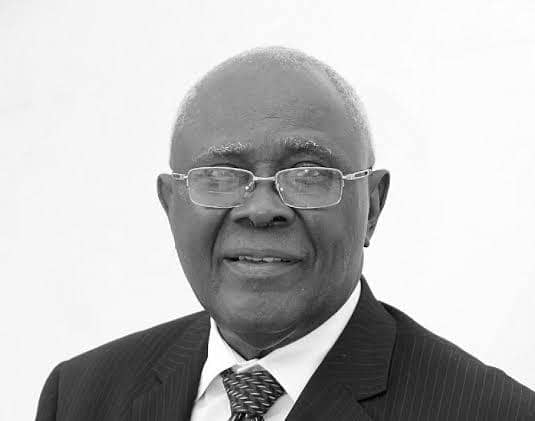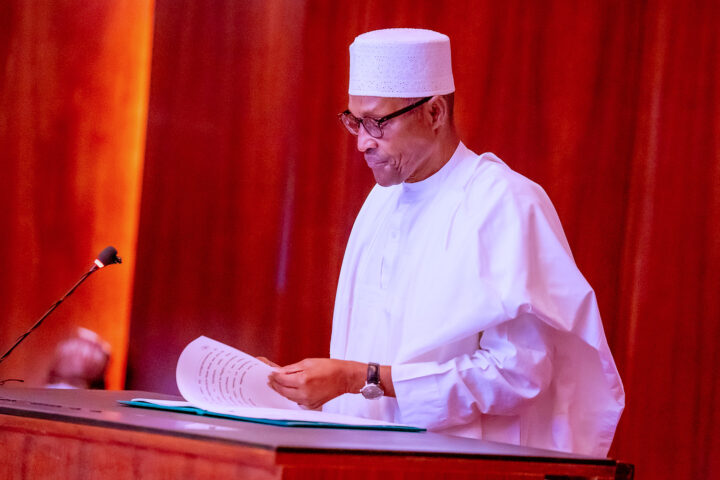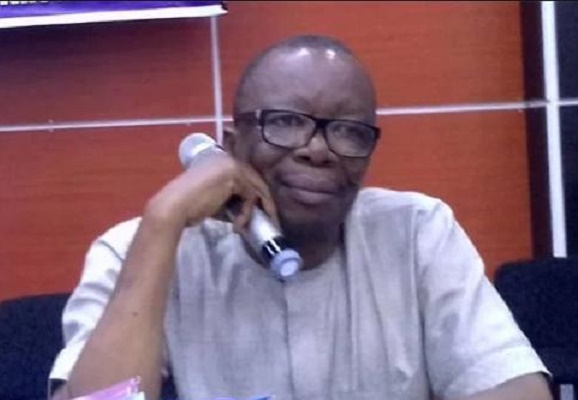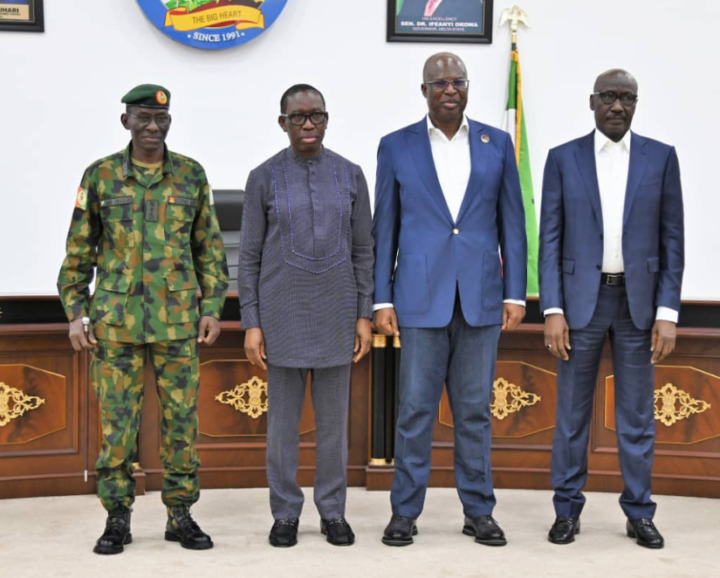Death is the most daring foe of humanity. It knocks on your door uninvited and spares no one — not even great men — when it sounds its hapless call. But it is an inevitable end for humans. On Thursday, it visited Akinlawon Ladipo Mabogunje, Nigeria’s foremost professor of geography, leaving his admirers in grief. He was an icon whose intellectual contributions have shaped the development of geography not just in Nigeria, but also around the world.
Mabogunje, the first professor of geography in Nigeria, drew his last breath on Thursday morning at the age of 91, after decades of a sterling career as a university lecturer. He was an embodiment of knowledge and a record-setting academic.
He was a respected statesman. Segun Adeniyi, spokesperson to late President Musa Yar’Adua, once stated how his principal described the late geographer as someone who can hold several meetings with the president without asking for a personal favour.
FROM KANO TO THE UNIVERSITY OF LONDON
Advertisement
Mabogunje, an Ijebu man from Ogun state, was born on October 18, 1931 to the family of Joseph Omotunde Mabogunje, a retired UAC official, and Janet Adeola Mabogunje, a trader. He spent his childhood in the Sabongari area of Kano.
He was married to Titilola Mabogunje, a judge, and blessed with three sons, two daughters. His daughter, Folasade Ogunsola, is a professor of medical microbiology. She was a provost of the College of Medicine, University of Lagos, and she was said to be the first woman to occupy the position.
Mabogunje received his first formal education at the Holy Trinity School, Kano; United Native African Church School, Kano and Central School Mapo, Ibadan, Oyo state — before moving to the prestigious Ibadan Grammar School where he completed his secondary education in 1948.
Advertisement
He won the Egbe Omo Oduduwa scholarship to study geography at the then University College (now University of Ibadan) in 1953 and started teaching there as a lecturer.
In pursuit of his unquenchable thirst for knowledge, Mabogunje proceeded to the University of London where he bagged a master’s degree and a PhD in geography in 1958 and 1961 respectively.
The academic with limitless possibilities rose to the position of a senior lecturer in 1964 and then to a professor of geography in 1965. He was said to have reached the pinnacle of his career at the young age of 34, a record that has become difficult for most Nigerian academics to break.
He was the head of department of geography, dean of the faculty of the social sciences, director, planning studies programme, member of senate and chairman of many senate and council committees at the University of Ibadan.
Advertisement
Several universities across the world had Mabogunje as a visiting professor. These include the Universities of Durham, Goteborg, and Lund; the University of Cambridge, University of Oxford, Northwestern University and McGill University.
A MAN OF MANY FIRSTS
Mabogunje has made a substantial contribution to the scholarly literature on modern geography, development, rural-urban migration and urbanisation globally.
Regarded as the father of African geography for his groundbreaking studies in the field, he is the first and only African to have won the Vautrin-Lud Prize — the highest honour in the field of geography — which he received in 2017.
Advertisement
Mabogunje was among the first recipients of the Nigerian National Order of Merit Award for his academic and intellectual contributions to the country.
He was the first African president of the International Geographical Union, a position he held from 1980 to 1984. In 1999, he was the first African to be elected as a foreign associate of the United States National Academy of Sciences.
Advertisement
He is also said to be the first African to receive a PhD in geography.
Mabogunje, who has a plethora of publications to his name, is a recipient of other numerous honours. He began amassing accolades early in his professional career. He won the geography prize at the University College, Ibadan. He received the David Livingstone Centennial Gold Medal from the American Geographical Society in 1972, an honorary B.Sc. in economics from Stockholm School of Economics in Sweden in 1973 and fellow status at University College London in 1980, among others.
Advertisement
Mabogunje served as member of the Western Nigerian Economic Advisory Council in 1967; member, Federal Public Service Review Commission, 1972; chairman, Nigerian Council for Management Development, 1976 and pro-chancellor and chairman of council, Ogun State University (now Olabisi Onabanjo University). He was said to have developed the master plan of the present university in Ogun state.
MAPPING THE FCT
Advertisement
Mabogunje’s extensive knowledge of geography was said to have played a crucial role in the planning and mapping of the federal capital territory (FCT).
In 1975, when the military junta led by the then head of state, Murtala Mohammed, decided to move Nigeria’s capital from Lagos to a more central location, Mabogunje was said to have been handed the task of leading a team of geologists to explore the area and provide vital information on the ecological condition of the would-be new capital.
The assignment covered, among other things, the flora and fauna, the human population, those who would be displaced, the scope of their assets and the amount of compensation.
In 2017 when Mabogunje turned 86, Toyin Falola, professor of African history at the University of Texas, asked the federal government to name a street after the renowned geographer as an honour for his “matchless designs and development of the FCT.”
“I am not sure there is a street named after him in Abuja. If there is one, he deserves it. If there is none, it is a great omission. In 1976, if my memory serves me, he took a team of geographers, microbiologists, geologists and others, to map out the proposed new federal capital and determine what facilities and landmarks would be located where,” Folola had said.
“Today, despite his advancement in age, he is not tired yet as he continues to contribute to national discussions, offering ideas on how to move the nation forward.”
AN ADVOCATE OF EFFECTIVE LGAs
In an interview with The Nation in 2016, Mabogunje criticised the present system of government, which he said is not sustainable. According to him, the local government should be strengthened to generate its revenue and foster development.
“There is no country that can be run without the local government system. It is either you have the bad one which you must improve for good. So, my advice to President Buhari is that he should strengthen local governments to engender development,” he said.
“States that can’t perform should merge and they should remove those receiving salaries for doing nothing. Awolowo had one single service and can, through this, perform well in the area of free education and others. In Nigeria, we like to build our houses from the roof downward and local government is a fundamental element of a democratic system of government in any country. Normally, we used to call town hall meetings but the reason there is nothing like such again is that people have been disempowered. It is at the town hall we always decide what we want such as electricity and other social amenities.”
The professor said the country does not have a framework to train its leaders on good governance.
MABOGUNJE’S FEAR ABOUT NIGERIA AFTER HIS EXIT
In some interviews granted by the geography don before his demise, he raised salient issues about poor governance in Nigeria, the country’s gloomy future, the generational dilemma and his exit. Speaking on the allegations of nepotism against the president, Mabogunje described Buhari as insensitive.
Mabogunje noted that leadership is always the problem in Nigeria and the country needs to get it right in that aspect in order not to go into a war against one another.
“Buhari is just insensitive. So, what do you think will happen with all the key positions he is putting in the north? How many more years does he have to spend as president? When he leaves, what do you think will happen?” he asked.
“Buhari is not building a country. He thinks he is building an empire for the North. Well, let him go on trying. Unfortunately, all I can think of is my departure. At the moment, it looks as if everything is okay for Nigeria and you can immediately think of what will be the breaking point. And yet the breaking point might be closer than we realize.
“I am thinking more of my exit than I am of Nigeria. Old age, for me, is not a prerequisite for death. The ripest fruit may not first fall and the Nigeria of your dream may be realised during your lifetime. I don’t expect much from this generation of which I am a part. For me, there will be a home call someday. I think I have done my best for my generation. All I am waiting for is to be called to the great beyond.”
Indeed, when the history of iconic Nigerians is written, Mabogunje will have his pride of place.
Add a comment






